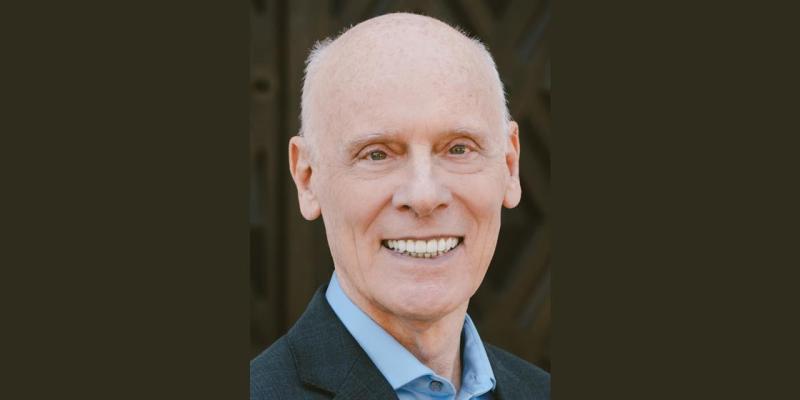The search beyond science: How an inquisitive atheist found God through astrophysics | Article | Unbelievable
By: Unbelievable


I don't have any particular or personal incites into who Hugh Ross is.
This is a continuation of my series on atheist conversions.
Let's see how it 'registers' - if it does!

Analytical scientist Dr Hugh Ross had been searching for answers about the origin of the Universe since he was a child. He found them in the place he least expected - the Bible. Jana Harmon shares his story here:
There are big questions about the Universe. How did it all begin? Why does the Universe appear to be so fine tuned for life? How did humans come to be? The answers to these and other questions are but a few of many that not only help us understand the bigger picture of reality, they also help us to understand ourselves. But how do we answer these big questions?
As an inquisitive atheist and astrophysicist, Hugh Ross searched for the best explanation for what he observed in the cosmos. Were naturalistic theories sufficient to account for the origin of the Universe? Or did he need to look beyond purely naturalistic causes to substantively ground what he was discovering? As an analytical scientist, he felt compelled to honestly, carefully searching until his curiosity was satisfied. It led him to belief in God. So, how did he move from scepticism to belief?
A brilliant child
Hugh was deeply interested in astronomy as a child. At age 7, he asked his parents if the stars were hot and if so, why they were hot. They promptly sent Hugh off to their local public library in Vancouver, Canada. Fascinated at the wealth of information he discovered there, Hugh brought home five books on physics and astronomy on his first visit. After having read them, he returned each week for five more books, the maximum number someone could check out.
Hugh's high IQ became obvious to all, including the librarian who allowed him to check out more sophisticated books on physics and astronomy in the adult reading section. Each year he changed his focus of study ranging from stellar atmosphere to interior stars to galaxies.
At age 15, he was selected as one of 25 top science students in the city, enabling him to get to know science professors at the University of British Columbia. By age 16, he decided to investigate cosmology and the different models for the origin and history of the Universe and became director of observations at the Vancouver Astronomy Club. He began giving lectures on astronomy to adult audiences and became involved in prize-winning research and publications. Needless to say, Hugh had a brilliant mind.
A sceptical mind
Hugh had a brilliant mind, but he also possessed a healthy scepticism about what he was learning. He did not take what he read at face value. Rather, when an assertion arose which did not make sense, he questioned it. He recalled an early instance of scepticism:
"My parents had me read this big, thick book of evolutionary biology at age 11. I was the only one in the family that read it. But I said: 'Mom, Dad, the numbers don't add up. I see all this appearance of phyla, orders and classes before humanity, but nothing after humanity. What's going on?' They said: 'Well, go talk to your science teachers.' They said: 'Go talk to those science professors you know.' Nobody could give me an answer for why there was this discontinuity."
When he began to study cosmology, Hugh also recognised inconsistencies among the models for the origin of the Universe:
"At age 16, I looked at the steady-state model for the Universe, the oscillating model, the big bang model, but recognised that the evidence, the observations, heavily favoured big bang cosmology. And I recognised that if it is big bang, the Universe has a beginning. If there's a beginning, there must be a cosmic beginner. And so I said: 'I want to find that cosmic beginner, but no one could guide me.'"
Searching beyond science
In order to find answers for the comic beginning, Hugh headed to the textbooks of philosophers Rene Descartes and Immanuel Kant but these writers did not satisfy. He then turned to religious texts of the world, studying the Hindu Vedas, the Buddhist commentaries, the Quran, the writings of the Zoroastrians, Bahai and Mormons. Although he tried to put these writings in their "best interpretive light", Hugh found serious problems with them all, especially their views of the Universe. He gave an example:
"What I discovered with the Hindu Vedas was that the Vedas talk about how the Universe has repeated beginnings every 4.32 billion years, and I knew that the number 4.32 was wrong. We have measurements that prove that it's wrong. And most people know that Hinduism has this belief of the reincarnation of humans and animals, but it's fundamentally based on the idea that the Universe reincarnates. But I knew that the entropy of the Universe was at least 100 million times too high for there to be any possible mechanism to reincarnate the Universe. So I said: 'Hey, this is not the pathway to the one that created the Universe.'"
Hugh also began to recognise that the Universe not only had a beginning, but that the cause of the Universe had to be outside of the Universe itself, pointing to a powerful, personal God:
"I was recognising that the Universe had a beginning. And that was followed up by the spacetime theorem, which proved that the Universe not only has a beginning, but the spacetime dimensions also have a beginning, which implies that the cause of the Universe must be some entity beyond space, time, matter and energy. So I recognised that in my late teens and said: 'There's got to be some kind of God. I need to find that God, that cosmic beginner.' And I also realised that we humans are personal. We're capable of free will and expressing and receiving love. The creator of the Universe must have those characteristics as well."
Opening the Bible
Finally, Hugh picked up a small Bible that was placed in his hands as a schoolboy. He had known no Christians in his life apart from two businessmen who put two boxes of Gideon Bibles on his second grade teacher's desk and left. Each child was invited to take one home.
Hugh's bible stayed on his bookshelf unexamined until six years later when he finally began to go through it. He spent hours studying the Genesis creation account, considering how it aligned with other passages in the Bible in light of what he knew of science. He was finding answers that seemed to allude him through his prior searching.
Hugh had long been plagued by the enigma in the fossil record, that new phyla, classes and orders appeared before humanity but none appeared after humanity. When he opened the Bible, he immediately began finding answers to this conundrum.
The first text in Genesis 1 describes six days of God creating the Universe, followed by resting from creation on the seventh day. For Hugh, this made sense. Six days referred to the eras before humans and the seventh day was the human era. He also found the basis for the scientific method as well as coherence with scientific findings within the initial pages of scripture:
"When I began to look at the creation text, I said: 'This is the scientific method. This is where it came from.' Because when you look at Genesis 1, what it tells you is a frame of reference for the six days of creation. It's God hovering over the surface of the waters, and it gives you the initial conditions as dark on the waters. The waters cover the whole surface. The Earth is empty of life and unfit for life. Well, those are steps one and two of the scientific method: Don't interpret until you have first established the frame of reference. Don't interpret until you have first established starting conditions. That's right there in Genesis 1:2. And from that point of view you go through the six days of creation, and I realised everything here is correctly stated, and everything is in the correct chronological order when compared with established science. The Bible got everything right and put everything in the correct chronological order, not like the other religious texts that got almost nothing right."
Believing in God
Once Hugh realised that the Bible was providing clarity where other texts had not, he began an 18-month study, which convinced him that it must have been inspired by the one who created the Universe, that it was not just written by men. At age 19, he signed his name in the back of the Gideon Bible, committing his life to Jesus Christ.
Studying the Bible had convinced him that it was not only true, but that God was real. From the consistency and coherence with science to the fulfilled prophecies in the Bible, and the elegant and beautiful moral message of the Bible, Hugh felt he had no choice but to believe. He realised that the harder he tried to live up to the moral perfection required by God, the more he realised he couldn't do it. But, Hugh also understood that God provided a way to cover his own moral imperfection:
. . . .
Some think that belief in both science and God is impossible, but not according to Dr Ross. He now spends his life carefully, meticulously studying two sources that have helped him find the answers: the book of nature - what we observe around us in the world and in the cosmos - and the book of scripture, the Bible.
If you'd like to listen to Hugh Ross tell his full story, tune into the Side B Stories podcast with Jana Harmon. Or you can find it on the Side B Stories website at www.sidebstories.com.
Jana Harmon hosts the Side B Stories podcast where former atheists and sceptics talk about their turn from disbelief to belief in God and Christianity. She is a teaching fellow for the CS Lewis Institute of Atlanta and former adjunct professor in cultural apologetics at Biola University where she received an MA in Christian apologetics. Jana also holds a PhD in religion and theology from the University of Birmingham in England. Her research focused on religious conversion of atheists to Christianity and related book is entitled, Atheists Finding God: Unlikely Stories of Conversions to Christianity in the Contemporary West.

 Article is LOCKED by author/seeder
Article is LOCKED by author/seeder






What, if anything else, are humans evolving?
The vast majority of all species have gone extinct since the Earth formed. It's very likely that humans will too.
We have no idea when or how that will come about. But the Sun is expected to go nova in about another 5 billion years, and all life will be gone.
Evolution still goes on, but at time scales far too large for us to observe them in most cases
In the meantime, I think Richard Dawkins' take on evolution makes a lot of sense. His "The Ancestors Tale" is an interesting read.
5 billion years away? We're safe! That is plenty time to 'get away'!